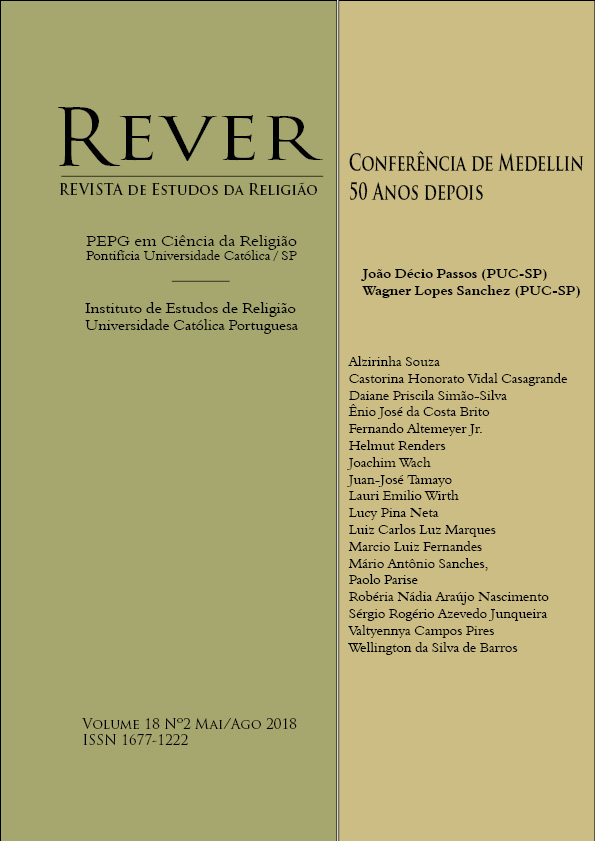O “Irmão dos Pobres” esteve lá: O que o “Pequeno Concílio” de Medellín e Helder Câmara significaram, um para o outro?
DOI:
https://doi.org/10.23925/1677-1222.2018vol18i2a5Palavras-chave:
Estado, Igreja, Modelos eclesiais, Poder, Movimentos de ResistênciaResumo
O texto dedica-se a selecionar e analisar, da imensa produção documental deixada pelo falecido arcebispo de Olinda e Recife, Helder Pessôa Câmara (1909-1999), sinais da importância, para ele, da organização daquela que viria a ser conhecida como Conferência de Medellín e de sua correta recepção. Com o uso do “método” ou “paradigma indiciário” de Ginzburg, foram selecionados textos que vão de 1962 a 1970, todos interligados por “fios-condutores” típicos do pensamento de Dom Helder, através dos quais é possível conhecer a sua evolução enquanto “operador social do sagrado”, na tentativa de construção de uma sociedade contemporânea laica, porém iluminada pelo Evangelho, a serviço da qual ele sonhava uma Igreja servidora, pobre e sem poder. O vivido e o decidido em torno da organização, realização e recepção de Medellín marca, para os autores, o início da fase mais madura das ações de impacto internacional do prelado brasileiro.Downloads
Publicado
2018-08-31
Como Citar
Marques, L. C. L., & Neta, L. P. (2018). O “Irmão dos Pobres” esteve lá: O que o “Pequeno Concílio” de Medellín e Helder Câmara significaram, um para o outro?. REVER: Revista De Estudos Da Religião, 18(2), 65–83. https://doi.org/10.23925/1677-1222.2018vol18i2a5
Edição
Seção
Seção Temática
Licença
Autores que publicam nesta revista concordam com os seguintes termos:
- Autores mantém os direitos autorais e concedem à revista o direito de primeira publicação, com o trabalho simultaneamente licenciado sob a Licença Attribution-NonCommercial 4.0 International, que permite o compartilhamento do trabalho com reconhecimento da autoria e publicação inicial nesta revista.
- Autores têm autorização para assumir contratos adicionais separadamente, para distribuição não exclusiva da versão do trabalho publicada nesta revista (ex.: publicar em repositório institucional ou como capítulo de livro), com reconhecimento de autoria e publicação inicial nesta revista.


